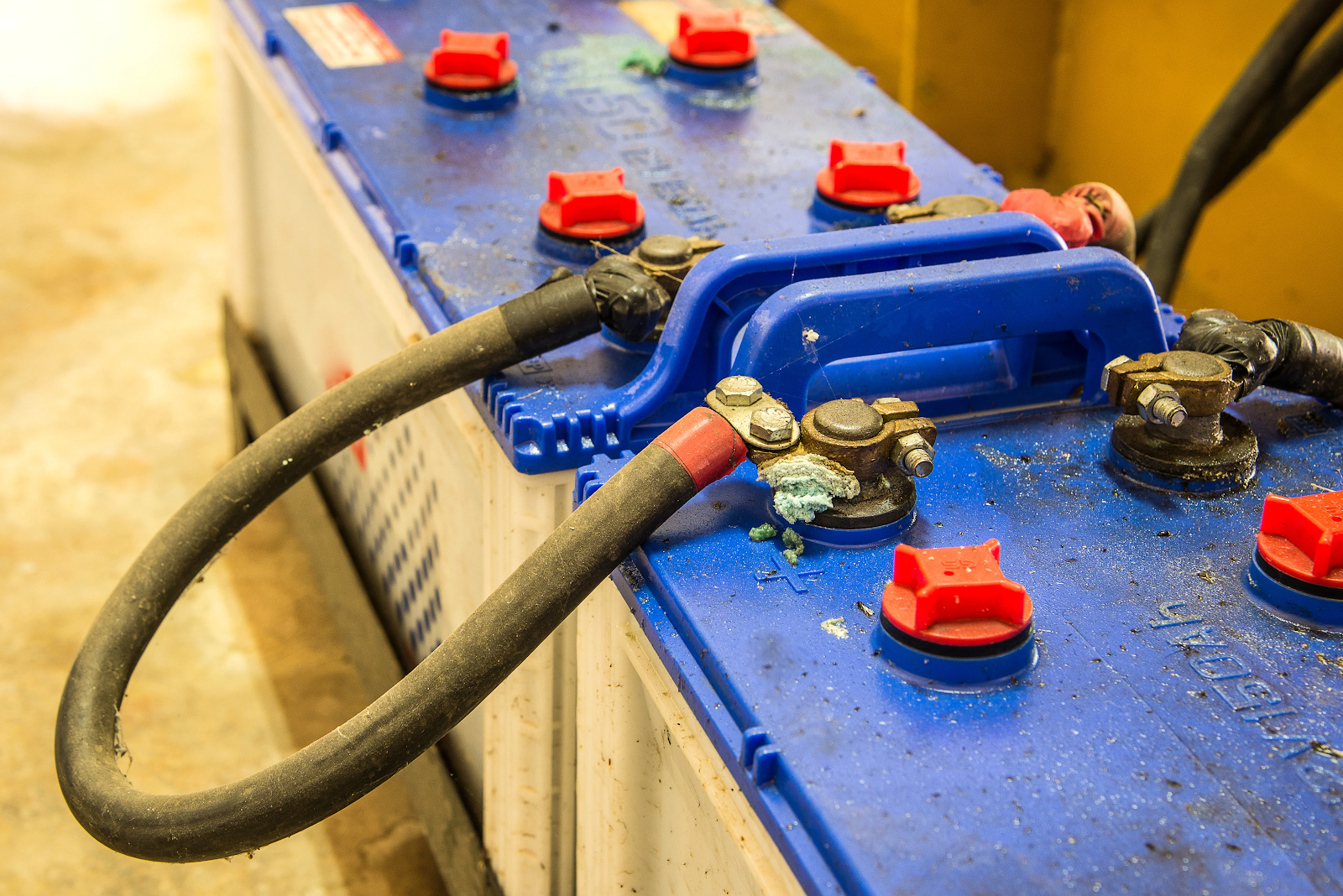Why Does a Battery Fail Prematurely?
🔬 What is Sulfation?
Sulfation is the process where a layer of lead sulfate forms on the battery plates. It is a routine process—when the battery discharges, lead sulfate sticks to the plates. Upon recharging, this lead sulfate dissolves back into the acid.
The problem occurs when the lead sulfate hardens and becomes stubborn, slowing the flow of current between the plates and the acid. The plates then fail to hold a charge properly, and the battery no longer charges fully. And when a battery isn’t fully charged, it won’t give a full backup.
At that point, we say the battery is "dead," but in reality, the plates are still intact—only a hardened layer of lead sulfate is blocking the function. If this layer is removed, the backup starts to recover.
🔍 Why Does Sulfation Occur? (4 Major Reasons)
1. Using Tap Water Instead of Zero-TDS Water
Most people add regular tap water to their batteries. This water contains minerals and salts that accelerate the sulfation process. Lead sulfate sticks more and dissolves less. As a result, the battery loses backup within 1–2 years.
✅ Always use distilled, zero-TDS water, preferably from a reputable battery company like AGS. If not available, you can use water from an air conditioner drain (around 40 TDS), but it's not ideal.
2. Not Fully Charging the Battery or Deep Discharging It
If a battery is fully discharged and not charged completely afterward, the lead sulfate remains on the plates and hardens over time, reducing backup.
This is common with car or solar batteries, which are sometimes undercharged due to inconsistent use or seasonal sunlight. In winter, for example, solar batteries may not charge fully for months, giving lead sulfate a chance to harden.
✅ To avoid this:
-
Don’t let the battery discharge below 20%.
-
Fully charge your battery at least once every 2 weeks or at least once a month.
3. Storing the Battery at High Temperatures
Always store the battery at room temperature (25°C or lower). If the battery sits in an environment around 35°C, its self-discharge rate doubles, and sulfation accelerates drastically.
4. Not Checking Battery Water Levels Regularly
When the electrolyte level drops, the plates are exposed to air and start drying. Any lead sulfate already formed hardens further. The plates corrode, and the acid becomes more concentrated, causing the battery to overheat or even explode.
✅ In hot areas, check battery water every 15 days; in cooler areas, check monthly.
❌ Never add tap water, or your efforts will be wasted.
🧪 How to Know if Sulfation Has Already Occurred?
Many batteries already suffer from sulfation, often unnoticed due to lack of awareness.
You can check using a multimeter. If your lead-acid battery (UPS, solar, or car) is less than 3 years old and its voltage is below 12.4V, it is undercharged—a key sign of sulfation.
🔧 How to Fix a Sulfated Battery
-
Charge with a Slow ChargerA good technician can slowly recharge the battery, allowing lead sulfate crystals to dissolve back into the acid.
-
Use a Desulfator or Battery ConditionerThese are available in the market. They clean the plates and help restore backup. This is an easy and effective solution.
-
Use a Special Pulse Charger (for Severe Sulfation)This charger sends specific electrical pulses that break hardened crystals. It may not restore the battery 100%, but it helps.
⚠️ When You Should Replace the Battery
-
If the plates are broken
-
Cells are dead
-
The battery is older than 5 years
-
You see brown or black sludge at the bottom after opening the caps
These signs indicate irreparable damage, and you’ll need a new battery.
✅ Final Advice:
With proper care—using distilled water, ensuring regular full charging, storing in cool temperatures, and maintaining water levels—you can make your battery last up to 5 years easily.
***Sulfation is preventable with just a little attention***


0 Comments
Note: Write me in the comments box below for any queries and also Share this information with your class-fellows and friends.